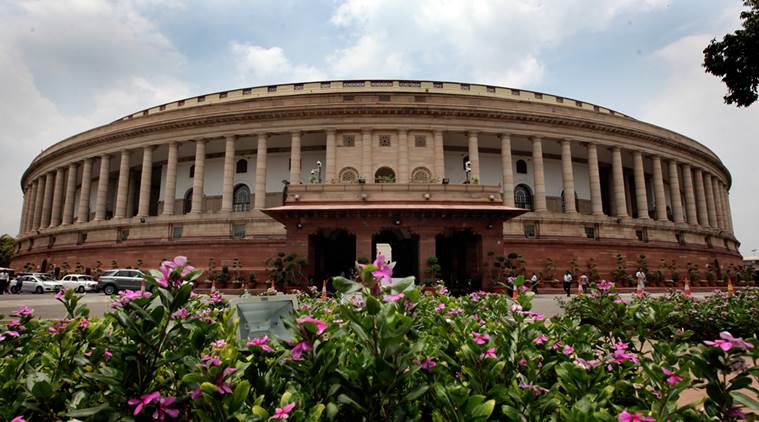Commissions Of Inaction
National commissions are white elephants: Expensive and ineffective.

Under the noses of these supposedly autonomous national bodies, the situation of citizens’ human rights and civil liberties has been moving from bad to worse. (Express Photo by Ravi Kanojia)
“Over the years, in many important debates, this statutory body has often played the role of a foot-soldier of frivolousness.” This is what The Indian Express said about the National Commission for Women in an editorial (‘Sins of Commission’, July 30) in the context of its reported recommendation to the government for banning by law the Christian religious practice of confession. “Reckless and damaging” the suggestion indeed is, but for me an issue for deeper thought is the editorial’s assessment of the role played by this 26-year-old organisation as an exercise in frivolity which, in retrospect, seems to also be true of most of its sister institutions.
In India there are national commissions aplenty, all supposed to be parastatal watchdogs to oversee the implementation of human rights and civil liberties. Today there are at least eight such quasi-autonomous bodies. The exercise began in January 1978 with the establishment of a central Minorities Commission, followed five months later by a joint Scheduled Castes and Scheduled Tribes Commission. Set up by the Morarji Desai government, these bodies were slated to be given constitutional status. But the move was scuttled by the then Opposition parties in league with some partners in government.
READ | National Commission for Women lives up to its record of being a foot-soldier of frivolousness
A second attempt to achieve the goal, made in 1990 by the V P Singh government, was also stifled. The bill moved for this purpose, passed two years later during the succeeding Congress rule, conferred constitutional status on the SC/ST Commission alone. The Minorities Commission was eventually rechristened as the National Commission for Minorities (NCM) and placed under an Act of Parliament. In 2003, the SC/ST Commission was split into two bodies, both enjoying constitutional status.
During V P Singh’s rule was also enacted a National Commission for Women Act 1990, but the first Commission under it was set up in January 1992 after the change of government. Next year, the new Congress government enacted laws for the establishment of two more national commissions, one each for backward classes and safai karmcharis. In quick succession, it decided to set up a National Human Rights Commission (NHRC), professedly to “counter the false and politically motivated propaganda by foreign and Indian civil rights agencies”. It came into existence in September 1993 under an ordinance retrospectively replaced early next year with the Protection of Human Rights Act. Mercifully, no new national commissions came up during the next 10 years, but on bouncing back to power in 2004, the Congress set up two national commissions — one each for minority educational institutions and protection of child rights. It had also moved a bill to confer constitutional status on NCM but did not seriously pursue the move. This year, a parliamentary committee and the present NCM endorsed the move but till date there has been no official response. Meanwhile, the government has conferred constitutional status on the National Backward Classes Commission.
The composition and appointment mechanism for various national commissions widely differ. The NHRC must be headed by a former Chief Justice of India and have two members each from amongst judges and human rights experts — all to be appointed by a high-level statutory committee. On the contrary, the NCM and NCW chairs and members are to be appointed by the government in its unrestricted discretion. While aspirants for the chair and membership of NCM should only be persons of “eminence, ability and integrity”, the NCW chair is simply to be one “committed to the cause of women” — only its members have to be “persons of ability, integrity and understanding who have experience in law or legislation, trade unionism, management of an industry or organisation committed to increasing employment potential of women, women’s voluntary organisations (including women activists) administration, economic development, health, education or social welfare”. The record of successive governments in adhering to the prescribed touchstones is disappointing. More so in the case of NCW — of its eight Chairs, the only name eminently fulfilling statutory requirements for eligibility has been of Mohini Giri.
Under the noses of these supposedly autonomous national bodies, the situation of citizens’ human rights and civil liberties has been moving from bad to worse. All these white elephants — each maintained with an exorbitant budget — are a drain on the state exchequer and ultimately an unwarranted burden on taxpayers.
The writer is former chairman, National Minorities Commission and member, Law Commission of India.
For all the latest Opinion News, download Indian Express App
More From Tahir Mahmood
- A Legend In His LifetimeTill the end, Justice Rajinder Sachar spoke up for the rights of fellow citizens..
- An untenable defenceIn both religion and law, polygamy has no place. ..
- In Bad FaithLingayats’ claim to ‘separate religion’ status is untenable..












































No hay comentarios:
Publicar un comentario